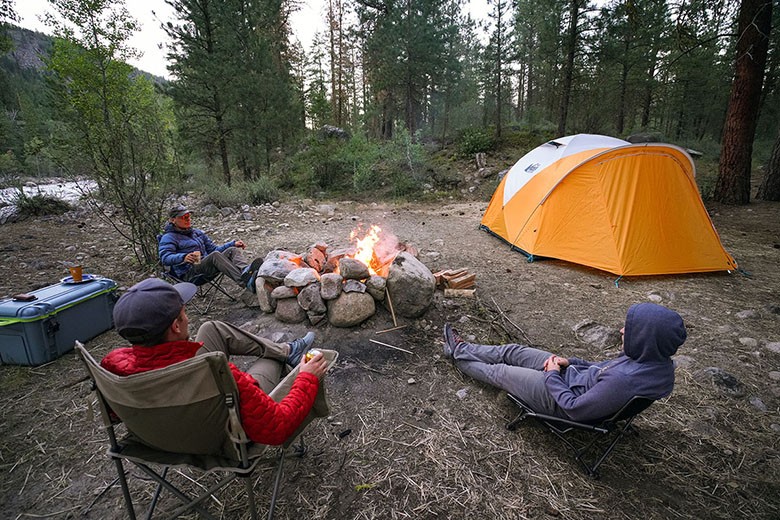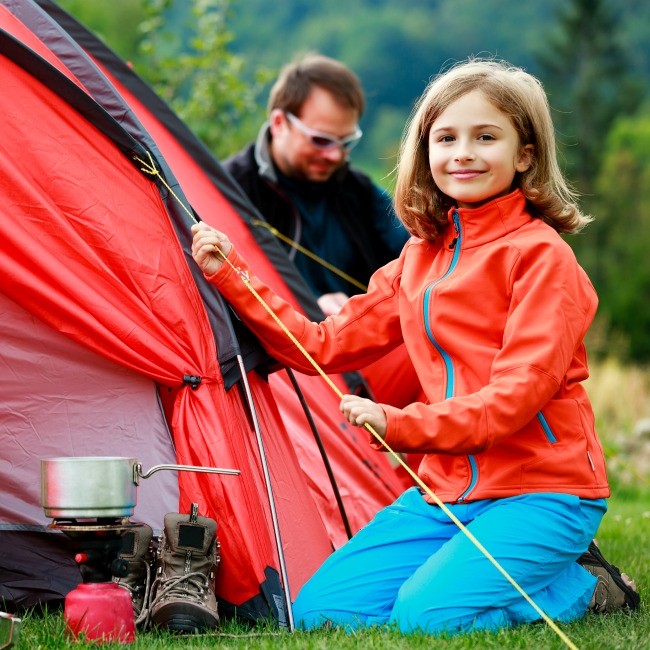If bed bug history is anything to go by, these vampiric critters are one of humanity’s most ancient enemies. Considering that our ancient ancestors lived outdoors, it is safe to assume you can get bed bugs when camping. This matter raises a critical question about getting rid of bed bugs in your camping equipment.
It is challenging to control whether you carry bed bugs home in your tent, sleeping bag, or other camping equipment. For that reason, this post seeks to answer all critical questions concerning bed bugs in camping equipment including:
- Camping concerns that expose your equipment to bed bugs
- How bed bugs get into your camping equipment
- How to get rid of bed bugs in your camping equipment
Table of Contents
How You Get Bed Bugs On Camping Gear
Bed bug in camping equipment is something you would not expect. The resilience of bed bugs is probably the most admirable and annoying trait that makes them thrive in the unlikeliest places. Bed bugs are primarily found in contained areas like indoors, clothes, packages, vehicles, and other sites that do not receive direct sunlight. That said, there are several scenarios that may expose your camping equipment to bed bugs. Here are some that you should know:
Bonding with fellow campers
Most camping incorporates fun activities and mingling with a lot of people. If one of those people carries bed bugs on their clothes, these pesky critters may crawl onto your clothing. You will most likely carry them onto your camping equipment when these happen.
Sharing camping equipment
Sharing camping equipment increases the chance of contracting bed bugs on them. More often than not, some people may forget some camping equipment, such as an inflatable mattress. You may innocently offer to share, but the individual in question has bed bugs unbeknownst to you. It is wise to always carry your own camping equipment and remind your fellow campers to do the same.
Inviting friends or strangers into your tent
Take great precautions when inviting strangers and new friends you just met into your tent. It is impossible to know if they have bed bugs or even recently got one from other strangers at the campsite. If you must interact with people, do so away from your tent. These would save you the effort and financial implications of a long protracted war with bed bugs back home.
Storing camping gear in a public storage facility
If you are a camping fanatic, chances are that you always have your camping gear ready every summer. You may decide to store them in public storage for easy access when you need them. The bad news is that your belongings may be exposed to bed bugs in the storage facility. You will save yourself a lot of pain by finding a safe storage space for your camping equipment at home.
Opting for used camping equipment
Buying used camping equipment often seems like an excellent idea to save your hard-earned money. If current bed bug statistics are anything to go by, you’ll likely lose more money in dealing with these vampiric pests. That inflatable mattress you purchased at an insanely low price may be a habitat for bed bugs.
New, slightly expensive camping equipment is far better than cheap ones that may cost you a lot in the long run. If you are working on a low budget and have to buy second-hand equipment, perform a thorough inspection for signs of bed bugs.
Setting up camp on camping hotspots
There are always sweet spots with stunning views, flat grounds, proximity to bonfires, and security from thieves and miscreants. People often occupy such hot spots within minutes of another camper leaving. You’ll likely get them if you set up your tent right after a previous occupant with bed bugs.
Setting up your tent close to others
Bed bugs can crawl to your tent if you camp in a congested area. They can crawl within a 20-foot radius. This means the closer you are to an infested space, the more likely you can get bed bugs in your camping equipment.
Always set your tent a bit further from other tents but close enough to get security from the safe numbers. You should also consider spraying bed bug repellent essential oils on your tent and other camping equipment.
Common Camping Equipment That Can Get Bed Bugs
Some equipment is more likely to get bed bugs, here are the most common:
Inflatable mattress
Inflatable mattresses do not offer a homely environment to bed bugs like the traditional form or spring mattresses. They, however, still can carry bed bugs to bite you in your sleep. Issues like storage or infested clothes from strangers could be why your inflatable mattress gets the critters.
Always examine your inflatable mattress’s folds, seams, and corners before and after a camping trip. Apply bed bug repellants on your mattress. It would also do you a lot of good to isolate your inflatable mattress after a camping trip or if you stored it in a public storage facility.
Sleeping bag
When camping under the night’s sky, a sleeping bag offers the warmth you need to get through the night. Bed bugs like areas where people sleep or hang out at night, putting your sleeping bag at risk of getting them. Make a habit of inspecting your sleeping bag every once in a while for signs of these critters.
Camping tent
There are a lot of factors that come into play in determining whether your tent gets bed bugs. Is your camping tent new, or did you buy it from someone else? Where and how did you store your tent after your last camping trip? Did you share your tent with friends and other strangers you met at your camping site?
Second-hand goods are more likely to harbor bugs than new ones. Also, as social as camping trips are, learn to transport your tent and other equipment individually to avoid. Each effort to secure your tent from bed bugs when camping outside is worth it.
Backpack
The chances of getting bed bugs in your backpack are generally slim for the average individual. That said, if one finds a way into your bag, it would be near impossible to spot it. This is because of the numerous folds, pockets, seams, and zips. Storing your backpack near infested items or carrying clothes with bed bugs would be the main reason these bugs get into them.
Recognizing Bed Bugs in Your Camping Equipment
Bed bugs thrive in two situations, dark, moist, and hidden places and areas with proximity to human beings for feeding. Your camping gear offers such ideal environments. Even though you may take preventative precautions, you may not succeed in keeping bed bugs away from your camping equipment. Thus, knowing how to search and recognize bed bugs is in your best interest.
Examine the cracks, joints, and voids in all the equipment you take on your camping trip. The folds and seams in your clothes, backpacks, sleeping bag, inflatable mattress, and beddings are the most suitable hiding places for bed bugs. The pockets in your gear and clothes could also possibly house the bed bugs.
The signs of bed bug infestations in your camping equipment are pretty similar to signs of bed bug infestation in your home. These are some of the signs you need to look for:
- Dark, rusty spots grouped in corners may show bed bug fecal matter.
- Blood stains on your sleeping bag, inflatable mattress, and any other bedding.
- Check out for bed bug exoskeletons at the seams, folds, corners, crevices, and joints of your camping gear. A UV flashlight comes in handy when searching because exoskeletons emit a blue light when exposed to ultra-violet rays.
Getting Rid Of Bed Bugs in Your Camping Equipment
Bed bugs are arguably the most resilient critters on earth due to their ability to hide and survive harsh conditions. That said, there are several ways that you can use to get rid of bed bugs in your camping equipment. Here are some that you should know:
- Heat treatment is arguably the best and most reliable bed bug treatment method. Subjecting your camping equipment to extreme heat above 125° Fahrenheit will eliminate bed bugs. If you are dealing with woolen, there are other ways of getting rid of bed bugs without damaging wool.
- Thoroughly vacuuming camping gear such as inflatable mattresses may help to get rid of bed bugs. Once you finish vacuuming, seal the vacuum bag and dispose of it appropriately.
Preventing Bed Bugs in Your Camping Equipment
At this point, the thought of camping outside and getting bed bugs has probably gotten you in trepidation. Before you fold your camping gear and store them away, never to be used again, consider these steps that you can take to keep bed bugs away:
- Spray bed bug repellent essential oils frequently on your camping gear.
- Do prior research on the camping sites you intend to visit. If a particular camping site has bed bug issues, there is a considerable chance that you’ll find complaints online.
- Separate the clothes you wear outside your tent from the ones you sleep in. Put the clothes you wear when interacting with fellow campers in air-tight bags and wash them in hot water when you get home.
- Examine your camping gear before and after every camping trip. Check the seams, folds, covers, cracks, and corners for signs of bed bugs.
- Be wary of letting strangers into your tent, as anti-social as it sounds. If possible, socialize outside your tent and only let new people in if absolutely necessary.
Final Thoughts
Finding bed bugs on camping equipment surprises most people because we often expect to find them indoors. While this is largely true, you can get bed bugs from fellow campers who may have unknowingly brought them from their home. The key takeaway from this post, therefore, is to always stay vigilant regardless of what you think you know about bed bugs. If you find even a single bed bug, seek treatment immediately to avoid having a full-blown infestation on your hand.
FAQs
Can you get bed bugs in a sleeping bag?
Yes. Second-hand sleeping bags may carry bed bugs from previous owners. It could also get infected if it comes into contact or is in proximity to other infested items.
Can you get bed bugs in outdoor camping equipment?
Yes. While highly improbable, outdoor camping gear can still bring bed bugs, especially if stored in infected storage or next to infested clothes and equipment.
Can bed bugs live in your backpack?
Yes. Bed bugs are the most stubborn and resilient pests. They can live long enough to feed on you and reproduce.
Can your canine camping mate transfer bed bugs?
Yes. Be careful about letting your dogs into other tents or coming into contact with other people on your camping trip, as it can ferry bed bugs back into your tent.


